SCWIST: A Distinguished Past and Growing into the Future
Back to Posts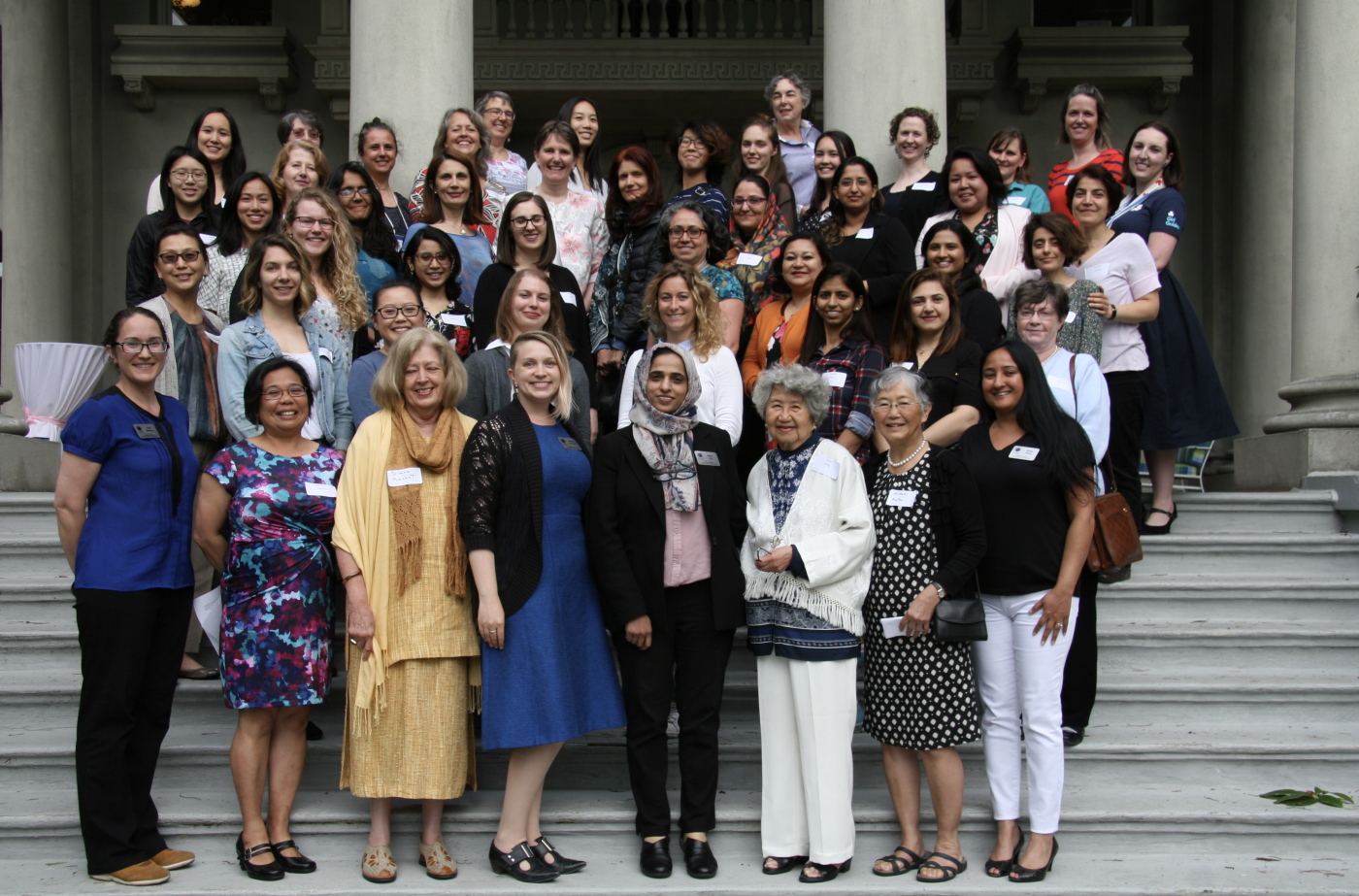
Compiled from the works of Nadine Nakagawa (2014), Joelle Ingrao (2014) and archived emails
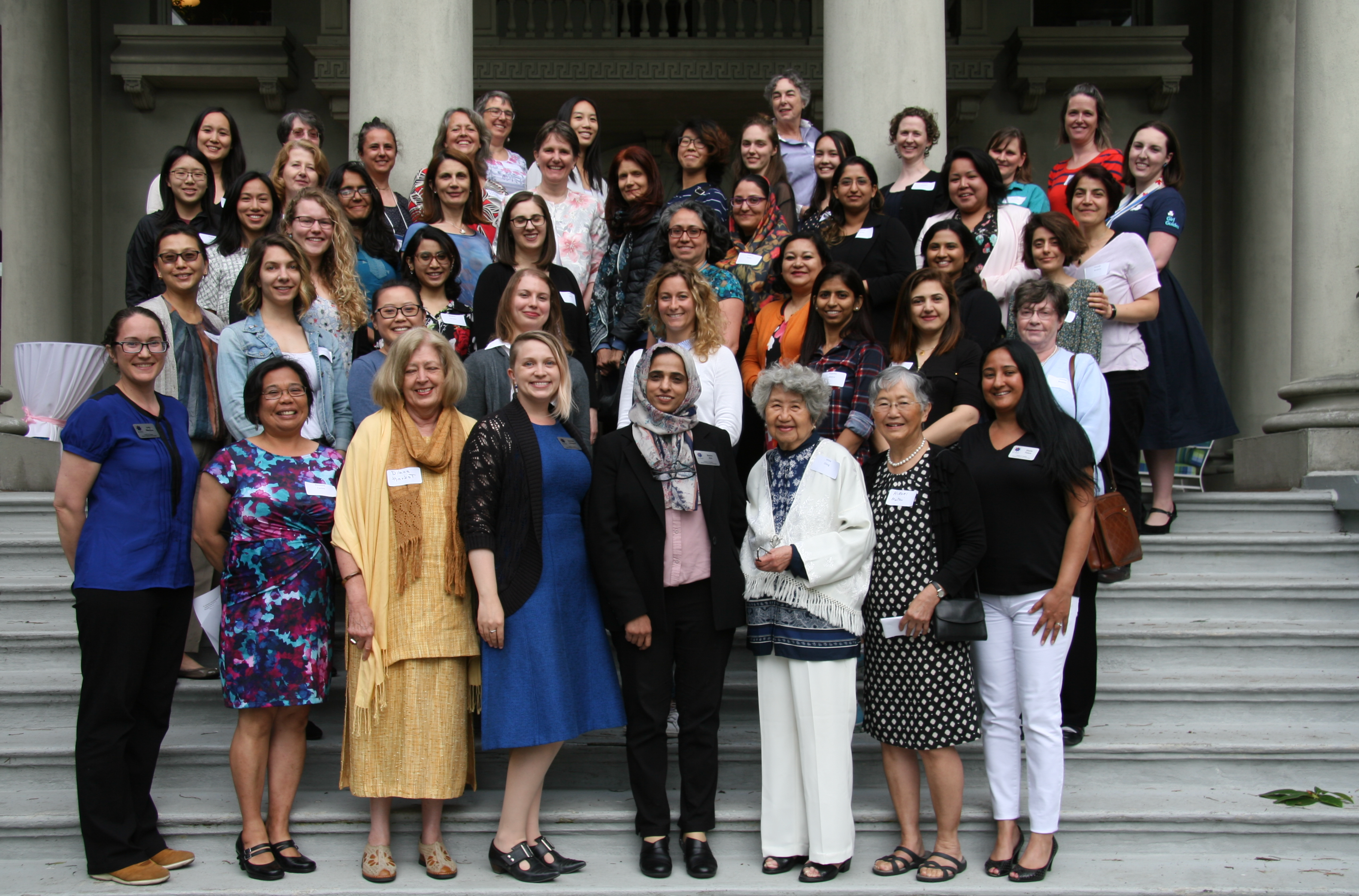
The Society for Canadian Women in Science and Technology (SCWIST) was born in 1981on the clematis-covered porch of Maggie Benston. It was here that the “undaunted five”- Mary Vickers, Hilda Ching, Abby Schwarz, Mary Jo Duncan and Maggie Benston– first conceived the idea of promoting the achievements of women in science. SCWIST was incorporated on July 30, 1981 with Mary Vickers as the founding president to encourage the full participation of girls and women in science and technology.
Within its first year SCWIST presented eight public programs, started the first registry of women in science in B.C. and the Yukon, and held panel discussions about the issues surrounding the female position in science.
Following the extremely successful 1983 National Conference on Women in Science, the Society began to host “Girls in Science” summer workshops with the belief that the promise of ‘affirmative action’ would be undermined by the lack of women holding PhDs. The workshops were created to encourage more young women to enter professions in science. At this time, SCWIST members were also invited to serve on the federal government’s Canadian Advisory Council on the Status of Women.
The 1990s saw changing demographic patterns which resulted in a decrease in the traditional pool of graduates from technical and scientific fields and therefore an increase in the need for educated professionals. Women were considered an untapped resource and SCWIST capitalized on this new demand by increasing the breadth and outreach of their programs, targeting both professional women and school-age girls.
The mission of SCWIST was developed to promote the recruitment, retention and promotion of women in science.
SCWIST has been successful in encouraging young women to study science, but more work is still needed in engineering, physics and computing science. Canadian women scientists and engineers are now confronting out-dated assumptions of women’s leadership roles in traditionally male-dominated fields. At the same time, there are growing numbers of highly-trained women who have immigrated to Canada who cannot work in their chosen fields.
SCWIST grows with the new realities: SCWIST strives to support and promote women in their education and career choices through networking and events, and SCWIST continues to delight in encouraging girls to imagine science, engineering and technology as part of their future.
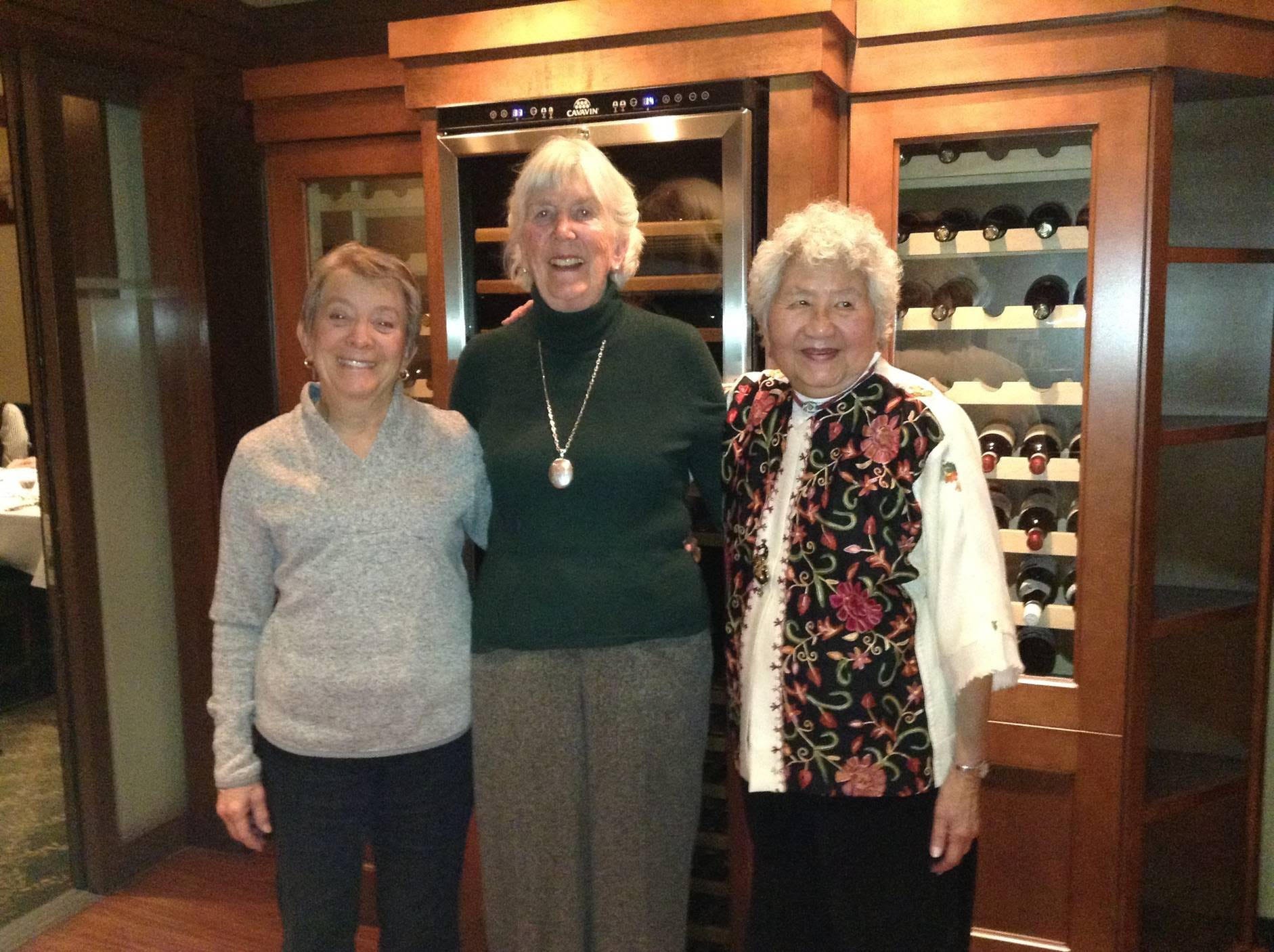
Founders
Mary Vickers was an instructor in biology at Douglas College in New Westminster, until her retirement in the early 80’s. In 1981, Mary was one of five founding members of SCWIST, and was the founding president from 1981 to 1983. During her term as president, the first national conference for women in science and technology was held in Vancouver. Mary is an honourary member of SCWIST.
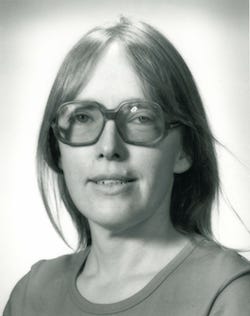
Margaret (Maggie) Benstonwas a professor of chemistry, computing science, and women’s studies at Simon Fraser University in Vancouver, British Columbia, and one of the founding members of SCWIST. In addition to founding SCWIST, Maggie also helped found Vancouver Mayworks, the Vancouver Women’s Caucus, and Women’s Skills Development of British Columbia. Maggie passed away in 1991. Following her death, she was named SCWIST’s first honorary member and the SCWIST B.C. Institute of Technology scholarship was renamed the Maggie Benston Scholarship. Simon Fraser University named The Maggie Benston Centre in her honor and established the Margaret Lowe Benston Memorial Graduate Bursary in Gender, Sexuality and Women’s Studies in her name.
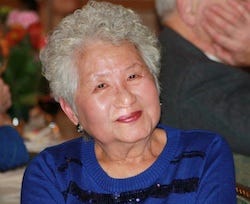
Hilda Ching was president of SCWIST from 1984–1986, and again from 1994–1995. She organize the first national conference for women in science and technology which attracted over 300 participants in 1983. in 1990, she produced a video for SCWIST entitled “What do Scientists Do?” which was distributed to elementary schools. She served as the Ruth Winn Woodward Chair from 1990 to 1991 in Women Studies at SFU. Hilda received a YWCA Woman of Disctinction Award in 1991. She also received a Michael Smith Science Promotion award in 1996. She and her late husband, Joe, were awarded honourary memberships in SCWIST.
Abby Schwarz was an organizer of meetings at Science World, of panel discussions, and provided historical perspectives on women in Science.
Mary Jo Duncan worked on the registry for women in science and technology in British Columbia and the Yukon, and an educational project on girls’ education in science. She now lives in Ireland.
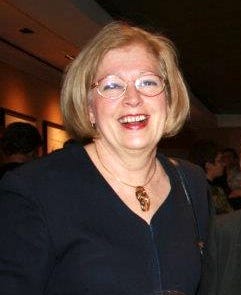
Diana Herbst contributed to the early framework of SCWIST helping to formulate by-laws and governance, securing federal funding for the first Women in Science conference, and applying for charitable status for the organization. She holds a BA in Microbiology from UC Riverside, an MSc in Biological Sciences from SFU and a PhD in Genetics from UBC. She served as the president from 1987 to 1988, during which the first ‘Women do Math’ conference was held at SFU. As Chair of the Awards & Scholarships Committee for a number of years, she was instrumental in revamping the Margaret Lowe Benston Scholarship at BCIT and setting up new scholarships — one at UNBC and another one at BCIT — as well as championing SCWIST Science Fair Awards. She also chaired the Nominations Committee several times to ensure continuity in SCWIST. Diana is an honorary member of SCWIST.
Past Presidents
Betty Dwyer, President 1983–1984
Betty obtained her B.Sc. (Hons.) in Physics and Statistics from the University of Manitoba in 1949, and a M.Sc. from Iowa State in 1954. She was an instructor in biometry and statistics at Simon Fraser University until her retirement in 1991. During her term, the first National Conference on Women in Science and Technology was held in Vancouver and The Registry of Skilled Women, BC and Yukon was produced. The ‘Girls in Science’ program was established, and its great success allowed for the program to be held in several communities throughout BC for the following years. Prior to her involvement with SCWIST, she headed the Biometric Unit of the Food and Drug Directorate in the Department of Health and Welfare from 1956 until 1959. She returned to Canada and joined Simon Fraser University in 1967. Betty is an honourary member of SCWIST.
Marian Adair, President 1986–1987
Marian Adair’s 40 years of experience in environmental and conservation land management grew from her technical roots as a terrestrial biologist. Marian holds a Bachelor of Science in Botany from the University of Calgary and is a Registered Professional Biologist and member of the College of Applied Biology.
Following graduation in 1975, Marian moved to British Columbia and started her career with environmental consulting. Aside from five years as Program Director of the Fraser River Estuary Management Program and Burrard Inlet Environmental Action Program, Marian worked as a consultant specializing in environmental planning and assessment throughout western and northern Canada. Marian worked 12 years for an engineering firm, as Vice-President of Norecol Environmental Consultants and as an independent consultant managing projects including the environmental approvals of the skytrain millennium line. Marian developed expertise in integrated resource management, water and land use planning, and environmental impact assessment processes.
Marian Joined The Nature Trust of British Columbia in 2002. As a senior manager in the organization, Marian is responsible for defining the conservation priorities for both acquisitions and conservation management of The Nature Trust of BC’s land portfolio. One of the most inspirational challenges for Marian while with The Nature Trust of BC has been her work as Chair of Biodiversity BC; a role she held since its inception in 2005. Biodiversity BC is a partnership of government and non-government organizations created to improve biodiversity conservation in the province and responsible for the development of Taking Nature’s Pulse The Status of Biodiversity in British Columbia released in July 2008.
Marian has been a SCWIST member since 1984 and during her time as president of SCWIST she developed the first policy guidelines for SCWIST projects. Following her role as president, Marian remained actively involved on the Girls in Science Committee and made numerous presentations to Elementary School Parent Advisory Committees about the importance of girls maintaining an interest and participation in science and math.
Josefina Gonzales, President 1988–1989
Josefina was president of SCWIST from 1988 to 1989. During her term, she presented a brief to the Royal Commission on Education and Part-time Employment, emphasizing girls and science education in British Columbia. The Secretary of State Women’s Programs also funded both the ‘Women Do Math’ conference, and the ‘Visiting Scientists Project’. In 1989, she was invited to sit at the National Round Table on the Environment and the Economy.
Tasoula Berggren, President 1989–1990
Tasoula Berggren was a senior lecturer and coordinator of the calculus and linear algebra workshop at Simon Fraser University, and was president of SCWIST from 1989 to 1990. During her term, she founded the “Women Do Math” (Discover the Possibilities) Conference at Simon Fraser University. She then directed the conference until 1991 in B.C. and the Yukon. In 1994, she received the ‘Service to the Community’ award from Simon Fraser University and has been an Honorary Consul of the Republic of Cyprus since 1998.
Penny LeCouteur, President 1990–1992
Penny LeCouteur was president of SCWIST from 1990 to 1992. She obtained her B.Sc. and M.Sc. in chemistry from the University of Auckland, New Zealand in 1963, and her Ph.D. in chemistry from the University of California, Santa Barbara in 1967. During her time as president of SCWIST, the ‘ms infinity’ program was established. Penny was also instrumental in developing SCWIST’s ‘Project Tomorrow’, and the SCWIST Resource Center was created during her time as presicent. In addition to her work with SCWIST, she was founding faculty member at Capilano College in North Vancouver where she taught chemistry for over 30 years, and was the Dean of Arts and Sciences from 2003 to 2008. Her book “Napoleon’s Buttons: How Seventeen Molecules Changed History” was one of four finalist in the 2004 Best Book category of the U.S. National Academies Communications Award for Excellence in communicating science, engineering, and medicine to the general public. She was also awarded the Polysar Award for outstanding chemistry teaching in Canadian colleges, and the BC Innovation Council’s Eve Savory Award for Science Communication. Penny is an honourary member of SCWIST.
Jackie Gill, President 1992–1994
Jackie served as president of SCWIST from 1992–1994. During her time as president, SCWIST opened their Resource Centre (1992) and established Project Tomorrow (1993), a series of seminars developed to encourage the community to sustain interest in girls in science.
Maria Issa, President 1995–1996, 2012 —
Maria obtained a Bachelor of Science in microbiology from the University of BC in 1971, and a Doctor of Philosophy in Immunology from the University of London. She was president of SCWIST from 1995 to 1996. During her term, she established “XX evening” and Science Worlds “Opening Doors” science networking program. Maria is currently a Clinical Associate Professor at the University of British Columbia and the Director of the UBC Pathology Education Centre.
Hiromi Matsui, President 1997–1998
Hiromi obtained a Bachelor of Arts from the University of Waterloo, and a Master of Science from the women in science, engineering, trades and technology. Hiromi was president of SCWIST from 1997 to 1998. During her time as president, SCWIST established their online presence and launched their first website (1997). During this time, the CD ROM “Xplore Science Careers” was produced, with the purpose of exposing young people to possible careers in science. Together with Judy Myers, Hiromi published “Where are the Women? A Benchmark study of Women in Information Technology in BC” assessing the presence of women in information technology fields in BC. Prior to retirement, Hiromi was the director of Diversity & Recruitment, Faculty of Applied Sciences, Simon Fraser University. She has served as director for the Canadian Centre for Women in Science, Engineering, Trades, and Technology (WinSETT), holds honorary Membership in the Association of Professional Engineers and Geoscientists of BC, and is an Honorary Fellow of Engineers Canada. Hiromi is an honourary member of SCWIST.
Judy Myers, President 2000–2002
Judy was president of SCWIST from 2000 to 2002. Together with Hiromi Matsui, Judy initiated the study “Where are the Women? A Benchmark study of Women in Information Technology in BC” assessing the presence of women in information technology fields in BC. Judy is an honourary member of SCWIST.
Elana Brief, President 2008–2010
Elena obtained her Doctor of Philosophy in physics from the University of British Columbia in 2000. Elena was president of SCWIST from 2008 to 2010. Elana served on the SCWIST board of directors since 2004, was treasurer in 2005, and president in 2008. Elena is currently a researcher at the National Core for Neuroethics at the University of British Columbia.
Authors:
Nadine Nakagawa
Nadine Nakagawa is a creative writer, a community-builder, and an advocate. She is an active community member in New Westminster who has championed causes such as a rent bank, creative solutions to the housing crisis, community gardens, reconciliation, and public art. She was named Citizen of the Year in 2017 and was elected to City Council in 2018.
Joelle Ingrao
Joelle Ingrao (Laudisio) completed a DVM in 2010, a DVSc Anatomic Pathology in 2014, PhD in virology/immunology in 2017 at the University of Guelph. Her interests lie in vaccine development and laboratory animal care and use. She is currently a member of the Site Quality Operations department at Sanofi Pasteur Ltd in Toronto, Ontario, which is responsible for in vivo quality control testing of all manufactured vaccines on site. Her current title is Deputy Director and Attending Veterinarian and is responsible for provincial, national, and international audit prepared